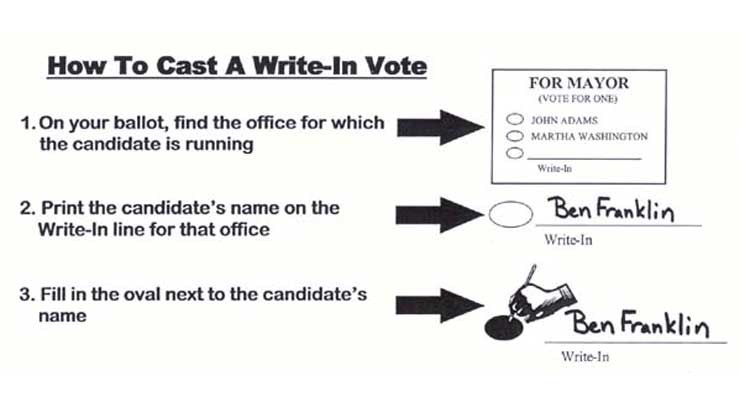
The BBC recently explained how weak ballot access laws mean voters must rely on write-in candidate rules. Ballot Access News explained recently that “Great Britain does not permit write-ins. This is mostly because the ballot access laws are so tolerant, anyone in Britain who wants to get on the ballot for House of Commons generally is able to do so.” In a recent BBC article, the issue is explored for British readers, pointing out “how write-ins work in the U.S., with special attention to write-ins for President”. According to the BBC:
Only seven states automatically count write-in votes – Vermont, New Hampshire, New Jersey, Iowa, Alabama, Pennsylvania and Rhode Island. At the other end of the spectrum, eight states – Arkansas, Hawaii, Louisiana, Nevada, New Mexico, Oklahoma, South Carolina and South Dakota – won’t accept any write-ins at all, while a ninth, Mississippi, almost always discounts them.
The rest allow write-ins, but require a candidate to register or submit some form of affidavit to do so. The paperwork varies from state to state, but is often labour intensive. It can also involve a fee. “Georgia requires an advert in a newspaper. There has to be a petition of 500 signatures in North Carolina. In Illinois, a formal declaration of intent has to be filed in every single county and board of election commissioners,” explains Richard Winger, of nonpartisan Ballot Access News.
Leave a Reply